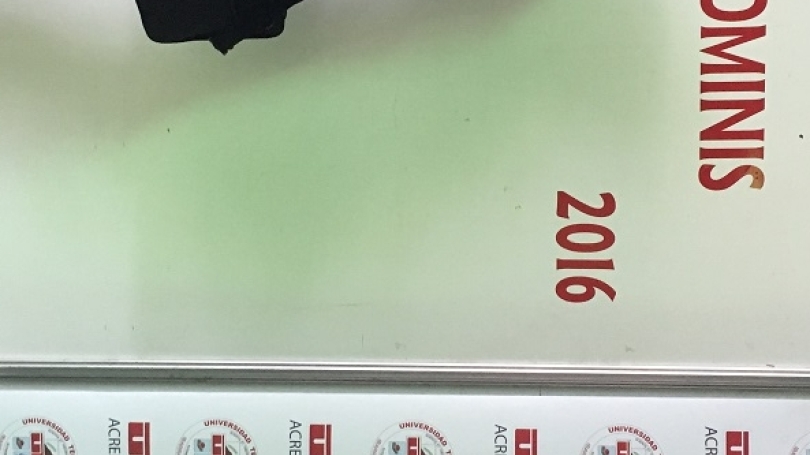
- Public Policy
- Leadership
- Funding
- News & Events
- About the Center
Back to Top Nav
Back to Top Nav
Back to Top Nav
Back to Top Nav
The opportunity to attend the Hominis 2016 conference in Havana, Cuba, was honestly the best way I could have possibly ended my Dartmouth career. The conference, which focused on La Psicología potenciando el bienestar humano (psychology enhancing human welfare), sat at the confluence of several of my interests that have accumulated over the past four years: my interest in global public health, my academic coursework as a psychology major, my magnetism toward Latin America, and my desire to immerse myself in new cultures. I learned an enormous amount not only from attending the conference but also by physically being in Cuba at this time of enormous flux for the country. To say that the experience was a good one risks making an understatement—it was phenomenal.
The conference itself consisted of two days of pre-congress courses and three days of lectures, panel discussions, symposiums, oral and video presentations, and poster sessions. The different symposiums, located across thirteen conference rooms, focused on psychology’s intersection with other topics. I focused my attention on the Clinic and Health room, where scholars from all over the world described their research and programs that involved the intersection of health and psychology. Although I attended a number of fascinating lectures ranging from perspectives within positive psychology to multilevel model variables in health psychology, my favorite talk concentrated on the information-motivation behavior skills model of health behavior change. Delivered by Dr. Jeffrey Fisher from the University of Connecticut, it discussed the applicability of the model to people with HIV/AIDS in international contexts, specifically in South Africa. Given my own previous work in HIV/AIDS prevention on campus this past term, I was very pleasantly surprised that such a topic had made its way to Cuba. I also found the presence of a large American delegate of scholars at the conference very indicative of the thawing relations between the U.S. and Cuba. Both in and out of the convention center, I learned about the hope, anxiety, anticipation, and confusion expressed by Cubans regarding the changes that will undoubtedly occur in the next few months.
Although I learned several lessons during my time there, one of my major takeaways from the trip was that there is significant overlap in how psychology is practiced and applied across various countries. I would discuss the same topics with psychologists from Chile and Colombia at the conference as I had months ago when I worked in El Salvador for an NGO focused on elevating the quality of care for vulnerable children. The career paths, motivation to pursue these lines of work, and daily realities of jobs that I learned about from the diverse collection of participants all shared common characteristics. It gave credence and a tangible face to psychological health in international settings. At the same time, I learned how the unique Cuban healthcare system contributed to a very distinctive role for psychology. Because physical and mental healthcare is integrated within the Cuban system, psychologists are included in all aspects of the healthcare system and thus contribute to a more holistic treatment of disease. Yet psychologists, like other Cuban doctors, are meagerly paid in comparison to their peers in other countries.
In retrospect, attending the conference was extremely valuable because it provoked me to think critically about the impact of governing modes—in this case, socialism—on health. Although Cubans have benefited from an incredible prevention-based healthcare system, they still struggle with resource/knowledge embargoes and incredibly low wages. I have been able to develop a more complex view of psychology, and I am now extremely excited for future opportunities for international collaboration.
-Submitted by Karen Wen '16, Rockefeller Mini-Grant Recipient
The Rockefeller Center's Mini-Grants program funds registration fees for students attending conferences, as well as the costs of bringing guest speakers to Dartmouth. The views and opinions expressed here are the author’s own and do not necessarily represent the views and opinions of the Rockefeller Center or constitute an endorsement by the Center.